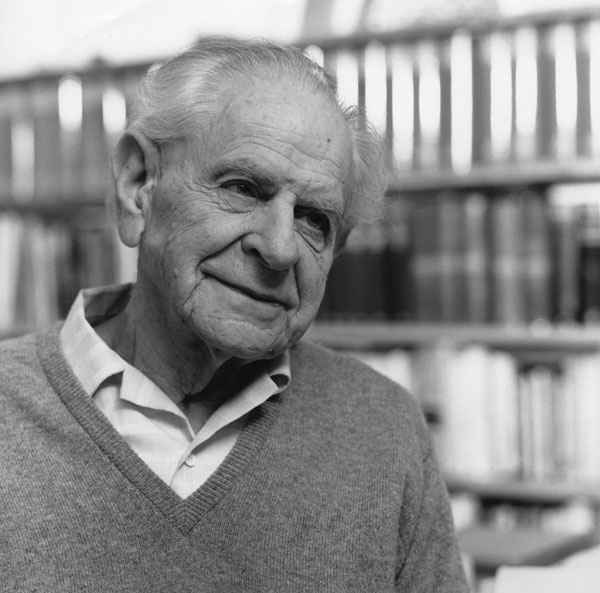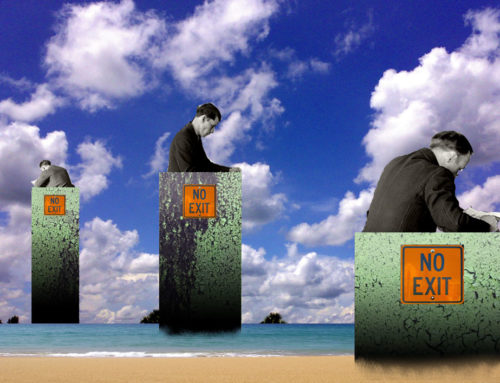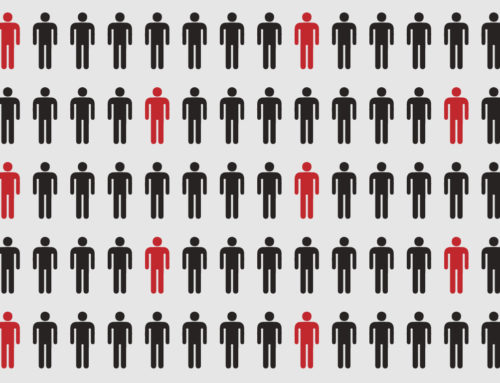By: Mohamed Farija
One of the winning submissions from the Battle of Ideas op-ed contest on the theme of Free Speech.
Racism. Sexism. Xenophobia. These problems have plagued humanity since time immemorial and there’s no sign that they’re going away anytime soon. Despite these problems, I choose to believe that the majority of people are decent human beings who inherently desire to live in a tolerant society.
An integral aspect of a tolerant society is people’s ability to have and promote differing viewpoints i.e. freedom of speech. However to declare such freedoms as unlimited is to give unsavory voices a place at the table.
Thus we are brought to Karl Popper’s Paradox of Intolerance. “Unlimited tolerance must lead to the disappearance of tolerance. If we extend unlimited tolerance even to those who are intolerant, if we are not prepared to defend a tolerant society against the onslaught of the intolerant, then the tolerant will be destroyed, and tolerance with them.”
However Popper did not suggest intolerant ideas have to be silenced, i.e. that his paradox be used to limit freedom of speech. Rather, actions of intolerance such as violence or oppression should be eradicated from a liberal society, even through force. “In this formulation, I do not imply, for instance, that we should always suppress the utterance of intolerant philosophies; as long as we can counter them by rational argument and keep them in check by public opinion, suppression would certainly be unwise. But we should claim the right to suppress them if necessary even by force; for it may easily turn out that they are not prepared to meet us on the level of rational argument, but begin by denouncing all argument; they may forbid their followers to listen to rational argument, because it is deceptive, and teach them to answer arguments by the use of their fists or pistols.”
While it is easy to agree with such a position in principle, which I do, placing the paradox into practical action is a political/philosophical ordeal. In Germany, on the 19th of August, 500 neo-Nazis held a rally to honor the death of Rudolf Hess, Hitler’s right-hand man and deputy chief of the Nazi Party until 1941. One would imagine that a neo-Nazi rally would be filled with swastikas and other Nazi imagery. However doing so is forbidden under German law. There would be no swastikas, Nazi songs, or salutes. In addition, those who attended the rally would be forbidden from using mobile phones, drinking alcohol or having any interviews with the media. It could be argued that it is unethical to control how a person dresses, acts (in so far as no physical violence is involved) or what they believe. On the other hand, it could be said that it is unethical to allow such a rally to take place as it would give neo-Nazis an avenue (though a limited one) to express their twisted views. It could also be argued that the German government struck the perfect balance as it suppressed the iconography and the ability of the message to spread, while also allowing such people to have their own beliefs thus not turning itself into a nation that punishes thought.
This brings me to the first of two issues I have Popper’s paradox. The first is Popper’s opinion that we should not “always suppress the utterance of intolerant philosophies; as long as we can counter them by rational argument.” Our first line of defense should be to suppress intolerant views on a social level by not even bothering to argue with them as such argumentation gives intolerant views a voice to be heard.
This is of greater importance today due to the rise of social media. Social media sites reward interaction. This means that if people like or comment on a certain post it’s more likely that it will be seen. For example if your friends on Facebook start commenting on a post made by someone who you’re not friends with or don’t follow then it might appear on your wall. Let’s imagine that this is an outwardly sexist post. You think that this person is obviously wrong and then you comment on this post. You get into an argument with the posters friend. Now all of your friends and all of their friends see your argument too. What has happened is, that even if it was your intent to show the stupidity of such a post, you promoted the post and got it seen by more people. So what’s the solution? Ignore the post. Fewer comments means less attention. The post would vanish into obscurity with barely anyone seeing it. You may have heard the adage, “If a tree falls in a forest and no one is around to hear it, does it make a sound?” I have a new one for you, “If a bigot spews intolerance and no one is around to hear it, does it make a difference?”
The second issue I have with Popper’s paradox is idea of tolerance. I don’t want people to be tolerant. I believe that they’re better than that. Tolerance is not the cure to such societal ills as racism or sexism. It’s only a bandage that is used to mask the underlying tensions that exist by covering it with a smiling face. The reason for this is that tolerance by definition means that you hate that which you tolerate. To prove this point further just look at the definition of tolerance in the Oxford Dictionary, which I took the liberty of placing a minor addition to. Tolerance is “the ability or willingness to tolerate the existence of opinions or behavior (or people) that one dislikes or disagrees with.” To quote the famed Slovenian philosopher Slavoj Zizek, “The liberal idea of tolerance is more and more a kind of intolerance. What it means is ‘leave me alone; don’t harass me; I’m intolerant towards your over-proximity.’”
Instead of tolerance give me respect. See me as your equal, just another human being. Zizek, during an interview with Big Think, one said that, “Download speeches by Martin Luther King. Search words like tolerance. He never uses them! For him it would have been an obscenity to say white people should learn to tolerate us more.”
He’s right. Martin Luther King was not an advocate for tolerance. He wanted respect and equality. Within his ‘I have a dream’ speech, Martin Luther King said, “This sweltering summer of the Negro’s legitimate discontent will not pass until there is an invigorating autumn of freedom and equality. Nineteen sixty-three is not an end, but a beginning. Those who hope that the Negro needed to blow off steam and will now be content will have a rude awakening if the nation returns to business as usual. There will be neither rest nor tranquility in America until the Negro is granted his citizenship rights. The whirlwinds of revolt will continue to shake the foundations of our nation until the bright day of justice emerges.”
Does this sound like a demand for tolerance?
People’s fear of being labeled as intolerant has led to a rise in extreme political correctness that has inadvertently closed down an important avenue towards mutual respect and equality. Politically incorrect jokes can often break down social barriers in a way that learning about other cultures and being overly mindful of what you say simply can’t. This is because such jokes can make fun of the absurdity of our differences, which are more often than not superficial, while being overly mindful places an unneeded focus on these differences.
As an Arab who used to live in England for the better part of five years I’ve experienced this first hand. Some people were very careful with their words and seemingly walked on eggshells around me. On the other hand my closest friends and I broke down any social or cultural barriers using humor that wasn’t strictly politically correct. One of my friends had invited a group of people over that I wasn’t familiar with. One of them asked me what I did for a living. From the other side of the room my friend yelled out, “He’s a camel trader. He sells pure-bred camels.” I played along, holding back my laughter. She asked me about my culture in a way that made me feel as though I was an alien who crash landed on earth. It was only after I told her that I had an oil field in my garden that she said, “Bullshit.” After she found out that I was at the time undertaking a masters degree in environmental engineering and had for the better part of twenty minutes been messing with her (she wasn’t the brightest of the bunch) that her tone changed. The barriers broke down. I was no longer ‘an Arab.’ I was just another person.
All of this does not mean that I do not believe that tolerance doesn’t have its place. But tolerance should only exist as either a first step or a final resort before a second chance.
What do I mean by ‘a first step’? Let us imagine that that we have two countries, for the sake of simplicity Country X and Country Y. They exist on separate continents and have very different cultures. Country X has a struggling economy that has led to mass unemployment. Country Y, on the other hand, has a flourishing economy that is in need of a larger workforce to keep it growing. People from Country X start migrating to Country Y in relatively large numbers. Due to the differing cultures it may be difficult for people in Country Y to embrace their new guests. It may take years for the two peoples to intermingle and gain mutual respect for each other’s cultures and traditions. Thus as a first step, before a true sense of mutual respect can grow, the two peoples should at the very least tolerate each other.
To understand what I meant by ‘a final resort before a second chance,’ imagine a third, but unrelated, nation. Within this nation there are two vastly different national populations with conflicting religious beliefs. These beliefs have led to civil war multiple times in the past. The current generation has an ingrained hate towards their fellow countrymen. Thus it would be best to tolerate one another to stop any violence from breaking through. They should also be mindful to not use intolerance speech in reference to the other population, as this would shelter future generations from perpetuating their hatred. This is a stopgap sort of tolerance, providing such a nation the hope of one day being truly united, when its people gain a mutual respect for one another.
So I will end this by asking something of you. Do not give me tolerance. Give me more. Give me respect. Give me equality.
Mohamed Farija is an Environmental/Mechanical Engineer, an aspiring writer, and a musician. His writing typically focuses on philosophical subjects and can be found on ilosofy.com.
Image: Karl Popper in 1990, via Wikipedia










“Our first line of defense should be to suppress intolerant views on a social level by not even bothering to argue with them as such argumentation gives intolerant views a voice to be heard.” You miss the point of opposing the intolerant view. Everyone needs to be aware of the intolerant view and when it appears in their social circle they will already understand it and be forewarned. Ignorance may be bliss is rarely if ever a good solution.
“tolerance by definition means that you hate that which you tolerate” that is not what the definition says. It says dislike or disagree with. Using the word hate pushes the definition to an extreme not required. Tolerance seeks to avoid extremism.